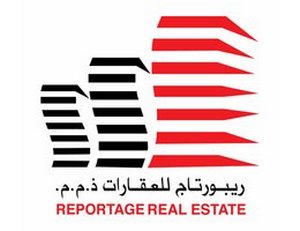
Against a backdrop of rather gloomy forecasts in the global economy, the explosive growth of Dubai’s real estate market has been raising questions for many observers in the last couple of years. Is there any reason for such growth, other than the feelings of buyers? Is the market overvalued and are we seeing a price bubble forming? Let’s look into this.
Content:
- Market bubbles: what are they about?
- Dubai’s real estate market in 2023
- So is there a bubble in the local market?
Market bubbles: what are they about?
Despite the fact that the word ‘bubble’ is used often in relation to the economy, a surprisingly large number of people have no idea what it is about. Before getting into Dubai’s housing bubble, it is worth briefly explaining what we are going to talk about.
When prices are above reasonable
A market bubble can have several names, such as a ‘price bubble,’ a ‘stock market bubble,’ or a ‘financial bubble.’ They can sometimes be used interchangeably within a single conversation, but they also denote the presence of bubbles in different sectors of the economy.
All these terms describe a situation when the existing state of affairs in the market differs in a big way from its objectively justified state.
For example, banks have provided more mortgage loans than there are people who can pay them off or the shares of a company have risen in price many times over, despite the fact that the company, by its income, clearly cannot recoup such investments.
In the context of real estate, it could be that developers are launching more projects than demand can absorb, or that real estate prices are unnecessarily high as a result of momentary excitement, whereas mainstream buyers cannot afford them.
Differences between bubbles and their impact
Bubbles should be distinguished based on risks and the degree of their impact. Depending on which segment of the economy is in a bubble, the impact that it will have on the entire economy, both nationally and globally, changes. Even at the level of the biggest events of this kind, like the dot-com bubble and the mortgage and global real estate bubble in 2007–2008, the difference is significant.
The dot-com bubble hit the stock market hard, bankrupted a lot of people and companies, but at the same time didn’t leave any significant mark on the mainstream economy. As a result of the stabilization of the market, several companies were formed in the segment of e-commerce, which are internet giants with global reach.
In contrast, the mortgage bubble and the associated bubble in the real estate market that formed in 2007 led first to a global financial crisis and then to an economic crisis. Their consequences not only have not been overcome so far, on the contrary, we now witness their new iteration. The bottom line is that the financial sector and the real estate market play an extremely important role in the economy and their crises lead to a cascading effect, first at the country level and then on the world stage.

Dubai’s real estate market in 2023
Since the start of the pandemic, Dubai’s real estate market has been characterized by rapid price growth, high absolute values of these prices, and record sales volumes. Largely, the source of the market’s current state is the same — a strong imbalance between scarce supply and excess demand.
Elite sector growth
However, this growth is uneven if we look at each segment of the local market in detail. In fact, the record figures in the market have been and will largely attribute to the elite segment of the real estate market. It could grow by more than 7% in 2023, which is lower than 12.4% shown in 2022 but still times higher than that in other international housing markets.
The growth of Dubai’s real estate market as a whole is slowing down in exactly the same way as all other world markets are slowing down. Most segments have already reached the price ceiling or are very close to it. The main driver of growth remains the premium segment, which thrives by attracting wealthy foreigners. Today, super-rich buyers from Europe drive the market.
Commercial real estate sector
Sales of commercial real estate are only gaining momentum. The sector still has a colossal room for maneuver, so we shouldn’t expect any problems here. The level of business activity in Dubai is only increasing since the spring of 2022.
The Emirates is waiting for the Chinese
In the mid-range residential real estate sector, growth could pick up again thanks to a projected influx of Chinese buyers and investors in the spring of 2023. The Chinese generally prefer to buy or rent studios, one-bedroom apartments, and other small-sized properties.
In other words, those sectors that are rising in price now and will continue to rise in the future do this due to a real buyer who is willing to pay the requested money. Other sectors of Dubai’s real estate market are slowing down. However, we cannot talk about a price bubble: demand, supply, and prices are quite balanced.
Mortgage in Dubai
The mortgage market is in a good position as well. Experts note the good regulation of this sector.
Here, we can refer to the following data.
- First, interest rates are rising, so the demand for mortgage loans will gradually decrease; in addition, UAE banks are tightening requirements for borrowers.
- Second, despite a quantitative increase of 50% in new mortgage loans in 2022, in H1, only 31% of real estate purchases in Dubai were made using mortgage funds. This is below 36%, the figure achieved in the same period in 2021.
- Third, it is known that for the whole of 2021, only 40% of real estate buyers used mortgage funds. This is a big difference compared to European countries and the US, where the number of mortgage buyers sometimes exceeds 70%.
- Fourth, data on the number of mortgage purchases in the first months of 2023 shows that it is so far slightly higher than in the same period last year, but still noticeably lower than in 2021.

So is there a bubble in the local market?
Let’s sum up what we have learned.
How a bubble led to a series of bankruptcies
Let’s go back to what we discussed at the beginning. Bubbles are dangerous primarily because of their cascading effects. The example of the dot-com bubble clearly shows the danger they pose.
When a certain segment of the economy suddenly shows growth and creates a stir, a lot of large investors, including institutional investors, tap into it. Many new enterprises are emerging that see demand from investors and try to provide an appropriate offer.
The problem begins when the interest of investors in the market, which is proportional to the amount of invested funds, ceases to match the real potential of this market, that is, the potential of businesses to yield the expected profits and indicators of return on investment. After all, businesses and investors use not only their own funds: they take loans from banks and attract money from other investors. The sector is developing, the labor market is growing, and sectors of the economy serving it are beginning to form around the major market.
On the whole, we get an interconnected web of interests, invested funds, and debt obligations. And when the bubble bursts, all these participants plunge into the abyss one after another. In the case of dot-coms, internet startups expanded and got into debt in anticipation of a neverending influx of investment. However, when it became clear that the amount of investment had become so high that the sector could not physically recoup it, the influx of new investment stopped abruptly.
Businesses lost the ability to pay off their debts and had to go into bankruptcy. People began to lose their jobs, and investors began to lose money. Banks ended up with a bunch of debts on their hands, which borrowers are unlikely to ever pay off.
Do we see such a situation in Dubai?
So, is there such a situation in Dubai’s real estate market? The answer is no.
Those market segments that are growing have real demand that can be met. Developers, brokers, and agencies have the ability to sell real goods to real buyers in exchange for real money. Those segments that do not have demand are actively slowing down in price growth.
There are not so many mortgage borrowers among the buyers; besides, banks are tightening their credit policy. There is only a small number of companies on the market that operate solely at the expense of momentary excitement, being at the same time heavily indebted. There are also no investors burdened with loans.
The governments of the UAE and Dubai are closely monitoring the economic situation in one of the key markets of the Emirates. Moreover, they do not hesitate to subsidize and support this market with income from other sectors of the economy.
To sum it all up, in 2023, the outlook remains positive for investors when deciding to buy property in Dubai, such as small apartments, to ride the coming wave of Chinese buyers. The decision to invest in the premium real estate segment and consider luxurious new developments in Dubai will also be profitable.
Today Dubai’s real estate market is still cheaper than its counterparts in other developed countries. It retains attractive niches for investors with great growth potential.







































